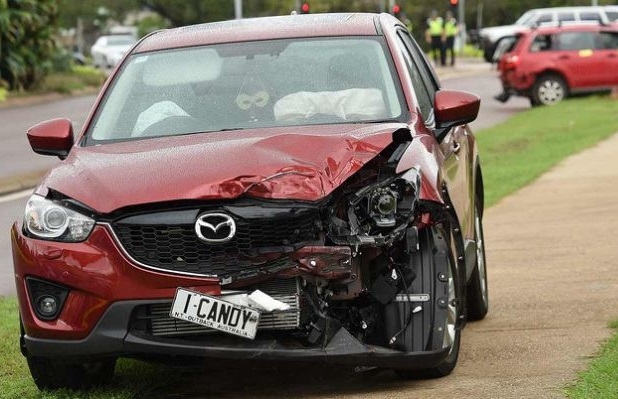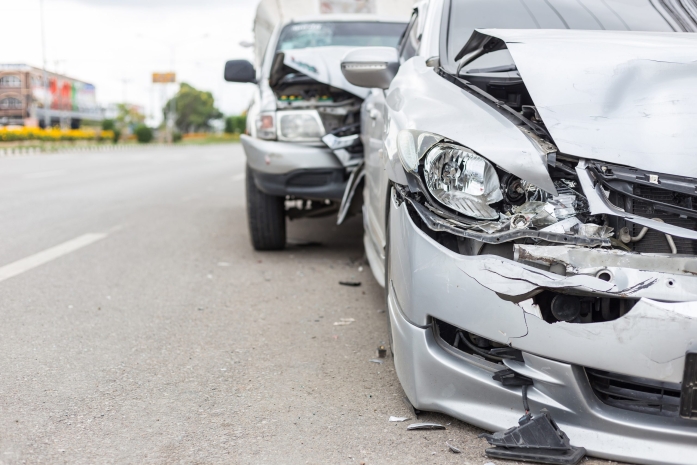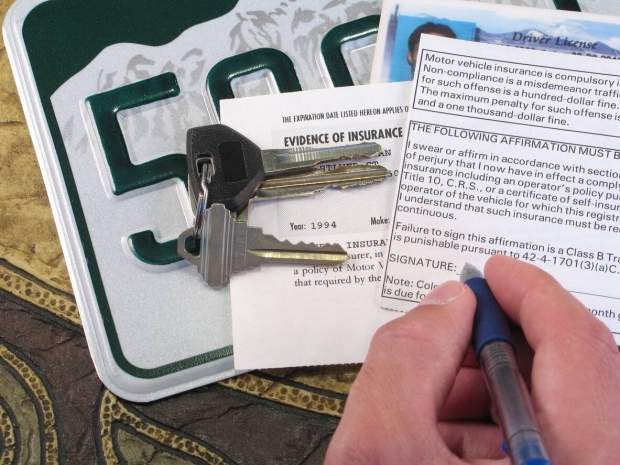Grinding noises coming from your car can only mean one thing: trouble. This article will give you some likely causes, some possible fixes, and what you can expect to pay for repairs.
5 Possible Causes of the Grinding Noise When Accelerating at a Low Speed
If you’re hearing a grinding noise when accelerating, it’s likely you have a pretty serious issue going on. There are a few different reasons you might hear metal grinding sound when driving and many of them have different causes. Here is a list of potential causes of that grinding noise.
#1 Transmission issues
If you’re hearing loud grinding noises coming from the engine area, it might not actually be the engine. It might be the transmission. Especially if you have an automatic transmission, grinding noises mean a serious issue. If you hear a constant, low-pitched grinding noise, it’s unlikely to be the clutch (which isn’t a cheap replacement, but it’s better than the whole transmission.) If the grinding noise is constant, it’s probably the teeth of the gears rubbing together. This could mean you have low transmission fluid, but if you’re hearing grinding, it’s probably past that point and you already have permanent damage to the transmission.
#2 A damaged differential
Your differential takes power from the transmission and distributes it to the correct wheel at the correct time. So it’s no surprise that you would hear a differential noise on acceleration because the differential is an essential part of the car in order to accelerate efficiently.
If you have a front-wheel-drive car (which would have a front differential), you may hear grinding sounds when turning, but that might be something else, too. This is a much different sound than just an exhaust rattle when accelerating (which could be a worn-out catalytic converter or a damaged heat shield). This sound is much more pronounced. If your car is making a grinding noise when accelerating from a stop, it could very well be your differential.
#3 Damaged CV joint
A CV (constant velocity) joint is what connects your transmission to the wheels. If they are damaged, you will likely hear scraping noises from the wheels, and you may even hear that your car grinds when turning. One way to tell if it’s a damaged differential or if it’s a CV joint is to listen for other noises. If you hear your tires rubbing, it’s more likely that it’s a CV joint than a differential. (It could also be your wheel bearings. Check to see the condition they’re in, because they’re supposed to minimize friction. If they’re in bad condition, it will cause you to hear grinding noises too.)
#4 A faulty alternator
Your alternator is a part that rotates to create friction to turn mechanical energy into electrical energy. Because it’s a rotating part, it has ball bearings to keep it spinning without making a grinding noise. If your car makes noise when accelerating at low speed, it could be that your alternator's ball bearings are in bad shape. The grinding noise will get louder (maybe even to the point of hearing a roaring sound) as engine RPM’s rise.
#5 Worn out brakes
If your car isn’t making a grinding noise when driving, but it makes a grinding noise while stopping, it’s likely you have worn out brakes. When your brake pads are worn down, there’s nothing between the caliper and the rotors. This means you’ll have a metal-on-metal connection where it shouldn’t be. You can tell if it’s the brakes from only hearing the grinding noise when you’re slowing down. Pump the brakes a few times as the brake pad might just be stuck, but if it continues after doing this, it’s likely you have worn out brakes and should get them looked at by an automotive mechanic as soon as possible.
2 Possible Causes of the Grinding or Scraping Noise When Starting a Car
A damaged starter
If you don’t hear a scraping noise when driving but do hear one when turning on your car, you likely have a damaged starter. The starter is an electric motor that engages the flywheel and spins in order to get the crankshaft rotating. Once the crankshaft is spinning, that means the engine is running, and the motor disengages the flywheel. Broken gear teeth, misaligned gears, and even a poor solenoid can cause a grinding sound upon starting your car.
A bad water pump
This will cause a grinding noise because of the bearings being damaged. The water pump circulates the coolant throughout the whole cooling system, and without it functioning properly, it can lead to even more damage. The grinding noise comes from the bearings being worn out. It’s possible to replace just the bearings, but it’s likely the seals will need to be replaced too. At this point, it’s worth it just to replace the whole water pump.
How Severe the Consequences Might Be
The severity of the consequences really depends on what the grinding noise is coming from. If it’s coming from a damaged starter and you’re sitting in your driveway, the worst that can happen is that your car won’t start in your own driveway. If you’re 100 miles away from home and it’s late at night, and your car won’t start, that makes the issue much more severe (and costly, as you’re going to need to pay a tow truck to drive you 100 miles!).
On the other hand, driving around with worn-out brakes making a grinding noise is just asking for disaster. When the grinding noise is coming from your brakes, that means your brake pads are worn down, and you won’t have the same stopping power as you would with healthy brake pads. This can very obviously lead to a very, very dangerous situation - especially if you’re in an emergency braking situation! You will want to get any grinding noises from your brakes checked out immediately because it can be very dangerous!
Another super dangerous situation may be having damaged CV joints. Not only might this cause a loss of power to your wheels, if it gets bad enough, but it could cause a complete loss of steering! You don’t need us to tell you just how dangerous that could be!
How to Fix the Noise When Accelerating and Driving at a Low Speed
This is going to depend on a lot of things. Mostly it depends on what’s wrong. One simple trick you can try is to locate all the parts of the engine we mentioned above and take a plastic hose and hold one end to the suspected damaged part and the other end to your ear. For instance, locate the alternator. If you think it’s the damaged part, hold one end of the hose to the alternator and the other end to your ear. If it’s indeed the alternator that’s damaged, you’ll hear the noise much louder. If you don’t hear the grinding, it’s probably not the alternator, and you’ll need to use the same tactic on the next part (like the water pump, for instance).
The only real way to find out exactly what the grinding noise is coming from your car is to take it to a trusted mechanic and have them look at it. There, you can describe the sounds you hear to give them clues, and they’ll be able to narrow it down and tell you exactly what’s wrong. Then they’ll be able to give you an accurate estimate of repair cost, as well.
How Much Might the Repair Cost?
The cost of repairs depends on what needs to be replaced and what damage the faulty part has caused.
- Transmission repairs are usually costly, but something as simple as a transmission flush and fluid replacement will cost you between $100 and $250. But if you hear a transmission whining noise when accelerating, it’s likely something much more expensive than that. Depending on the issue, a transmission repair will cost you between $900 and $1500, with a replacement costing you up to $3400!
- A rear or front differential repair will cost you between $200 and $800, with a replacement going all the way up to $1500.
- If it’s the CV joints, a single joint repair will cost you anywhere between $100 and $250 for parts. With labor, it can cost up to $800. And that’s only for one. If you need to replace both (and it’s likely you will), double this cost.
- A new alternator will cost you between $150 and $350 for parts alone. When you factor in the labor costs of a replacement, it can run you up to $800!
- The cost of fixing worn-out brakes has a lot of variables. If it’s just a brake pad replacement, expect to spend between $150 and $300 per axle (you have two axles). But if you’re experiencing a grinding noise from your brakes, it means the brake pads are already gone, and the caliper on rotor grinding may mean you need to replace the rotors as well. If you have to replace the rotors on top of the pads, expect to spend at least another $500.
- A new car starter will cost you between $80 and $350. This might not sound too expensive, but that’s without labor. With labor, you can pay all the way up to $1100.
- To replace a water pump, you’re looking at an average of $550. But it could get much more expensive depending on the make and model of your car and how difficult it is to access the pump. If it’s difficult to access, that means more labor hours and more labor hours means a higher repair bill!
Junkcarsus is a Trusted Junk Car Buyer Working for 12 Years
A weird grinding noise coming from anywhere in your car isn't a good sign. In fact, it's a sign a pretty serious issue is about to get much worse, and that means a hefty repair bill is in your near future. Unfortunately, that means you might have to decide if keeping the car and repairing are worth the cost or if it's more financially responsible to cut your losses and sell your car to a junk car buyer.
At JunkCarsUS, we have over 12 years in the junk car buying business, and we have become the leading buyer of junk cars in the USA. With all of our experience, we’ve made the process of selling your junk car to us as simple as 1, 2, 3! Let’s take a look.
- Contact us. If you want to sell your car for scrap, give us a call at (855) 547-1550 or fill out an online offer for junk car. Let us know the make, the model, the year, the condition, and the mileage of the car you want to sell us, and we’ll give you a top dollar cash offer on the spot. Or go to our how much will you get for scrapping your car and get an offer within 90 seconds.
- Accept our offer. We offer the highest price guarantee out of any junk car buyer in the US, so we know you’ll be happy with our cash offer. Once you accept, just give us the location and the most convenient time for you to pick up your car, and we’ll be there. Then get your $$$
- Free towing. When you deal with JunkCarsUS, there are no hidden fees, and that includes towing. We’ll send a trusted tow truck driver to your location, and he’ll safely remove your vehicle from wherever it is.
But what about paperwork? Glad you asked. We have so much experience, we know exactly what information needs to go where. This means one of our friendly team members will fill it all out for you, and the tow truck driver will have it with him when he arrives. All you have to do is sign on the dotted line!
It really is that simple! So if you’re looking to get rid of your junk car, you’re in luck because sell a wrecked car for cash. Give us a call at (855) 547-1550 to see how you can turn your hefty repair bill into cold hard cash in your pocket today!
FAQ block
What might cause noise when accelerating at a low speed?
This could be a few different things, and it’s hard to tell without more information. It could be your transmission, your front or rear differential, your alternator, or a damaged CV joint. The only way to know for sure is to bring it to a trusted automotive mechanic and let them inspect the car.
How to fix the noise when accelerating at a low speed?
If you’re experiencing a grinding noise at low speed, it’s highly likely a mechanical part like your transmission or differential. It may be a CV joint, but that would also make a grinding noise while turning. Whatever the repair is, your best bet is to take it to a mechanic because it’s likely fixing it by yourself will be far too difficult.





